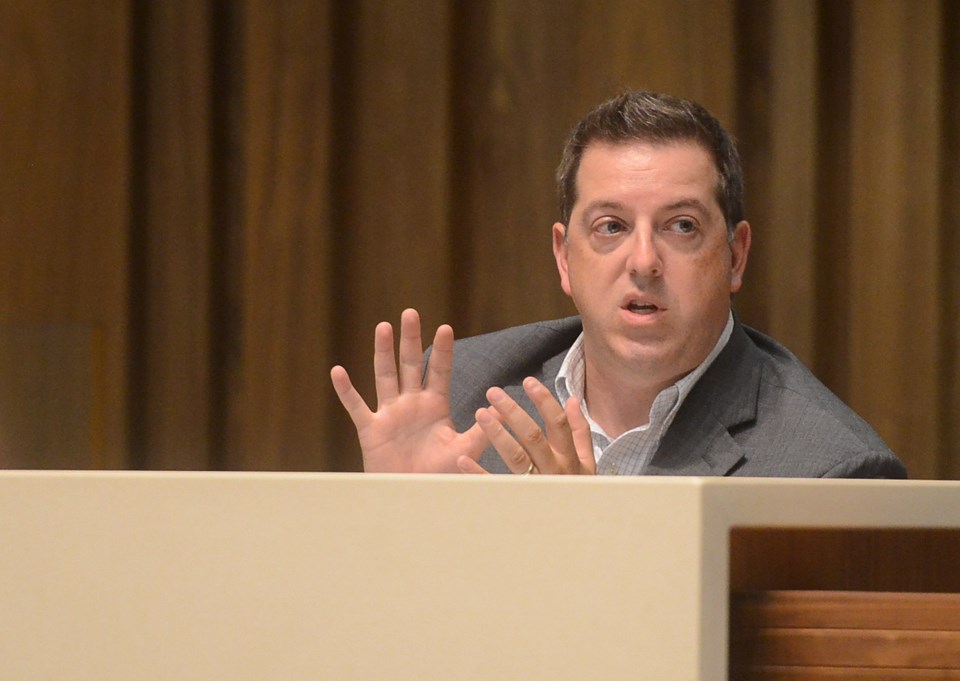He doesn’t “want” to use the co-called ‘strong mayor’ powers about to be bestowed upon him by the provincial government, but Mayor Cam Guthrie says he’s open to considering it under some circumstances.
“It’s a tool that’s going to be in a toolbox. That tool may never be needed to be used, but if that tool would help, then at least I know it’s sitting in the toolbox waiting to be used,” Guthrie told GulephToday, referring to the ability to overrule council decisions and more.
“I feel like I won’t ever be wanting to use it,” he added. “This term of council has worked together great and collaboratively around all of these issues. So there isn’t anything in my mind from a strong mayor position and using that tool with council at all. That’s because we’re working collaboratively, trying to get stuff done.”
Several councillors have spoken out against strong mayor powers, labelling them 'undemocratic.'
As of July 1, the city’s mayor will have the ability to veto council-approved bylaws, create committees and decide who leads them, hire senior city staff, reorganise municipal departments and more.
Council can override the mayor's veto of bylaws and/or budget amendments with a two-thirds majority vote, which in the case of Guelph means nine councillors.
That ability to override a veto is an important part of checks and balances regarding the strong mayor powers, Guthrie said.
“I am strongly offended by this legislation. It is contrary to everything democracy means in Western society,” said Coun. Leanne Caron. “I think our community should be outraged by this.”
“People vote us in to represent the city, not the province. There’s a different election for that,” added Coun. Erin Caton. “They should be kept separate.”
The provincial government is already in charge of deciding what can be built where, pointed out Caton, referring to the provincial government’s passage of Bill 23, which made numerous changes to the approval process, among other things, and alterations made by the province to the city’s official plan.
That plan sets regulations regarding building heights, densities, land uses, parking requirements, etc. throughout the city.
“Legislatively, the province has already mandated everything they want us to do,” said Caton. “We can’t work outside of that, so I don’t understand what else would be needed. If developers are creating things that sit within what the province wants, then it doesn’t even come to us.”
Guelph is one of 26 municipalities to see ‘strong mayor’ power granted through the legislation announced on Friday, following last fall’s endorsement of the same for Toronto and Ottawa.
The idea, as explained in a news release, is to allow heads of council to "cut red tape and speed up the delivery of key shared municipal-provincial priorities such as housing, transit and infrastructure."
“I’m disappointed in the premier and the (Progressive) Conservative government for thinking strong mayor powers are necessary,” said Coun. Phil Allt.
“It’s moot whether there are strong mayor powers or not,” he added, suggesting the biggest holdup to housing development is a lack of trained labour for the industry. “You’ve got strong mayors and nothing to do.”
Coun. Linda Busuttil, too, feels strong mayor powers won’t accomplish much. She’s calling on the provincial government to create affordable and co-operative housing in Guelph and other communities.
“I’m concerned about the people stuck in the middle,” she said, referring to the housing spectrum between supportive housing and market rentals.
Other concerns raised by councillors include the potential for a mayor to make patronage appointments to committees, as well as that the mayor's ability to fire senior staff and reorganize municipal departments could influence the information and professional opinions presented to council for consideration.
"While I have my personal reservations on the efficacy of this provincial legislation, we still need to remember that our city is an essential service provider residents depend on whether they know it or not,” said Coun. Ken Yee Chew via email. “At this time, the mayor has an opportunity to empower the city by providing political stability and consensus driven direction to city council and staff. All of us will have to work together in this new political paradigm to make sure we can still deliver on the strategic plan priorities we established together.
“Strong mayors powers, and their extension now to 26 more municipalities, is a historic and unnecessary incursion into local government,” added Coun. Dominique O’Rourke in an email. “It gives massive powers to the mayor. It blurs the line between the mayor’s responsibility to the electorate or to Queen’s Park. It upends the professional, non-partisan, public service. It smashes the principle of majority rule. It invites provincial partisanship into local city halls.”
Efforts to reach other city councillors were not successful prior to this article being published.
